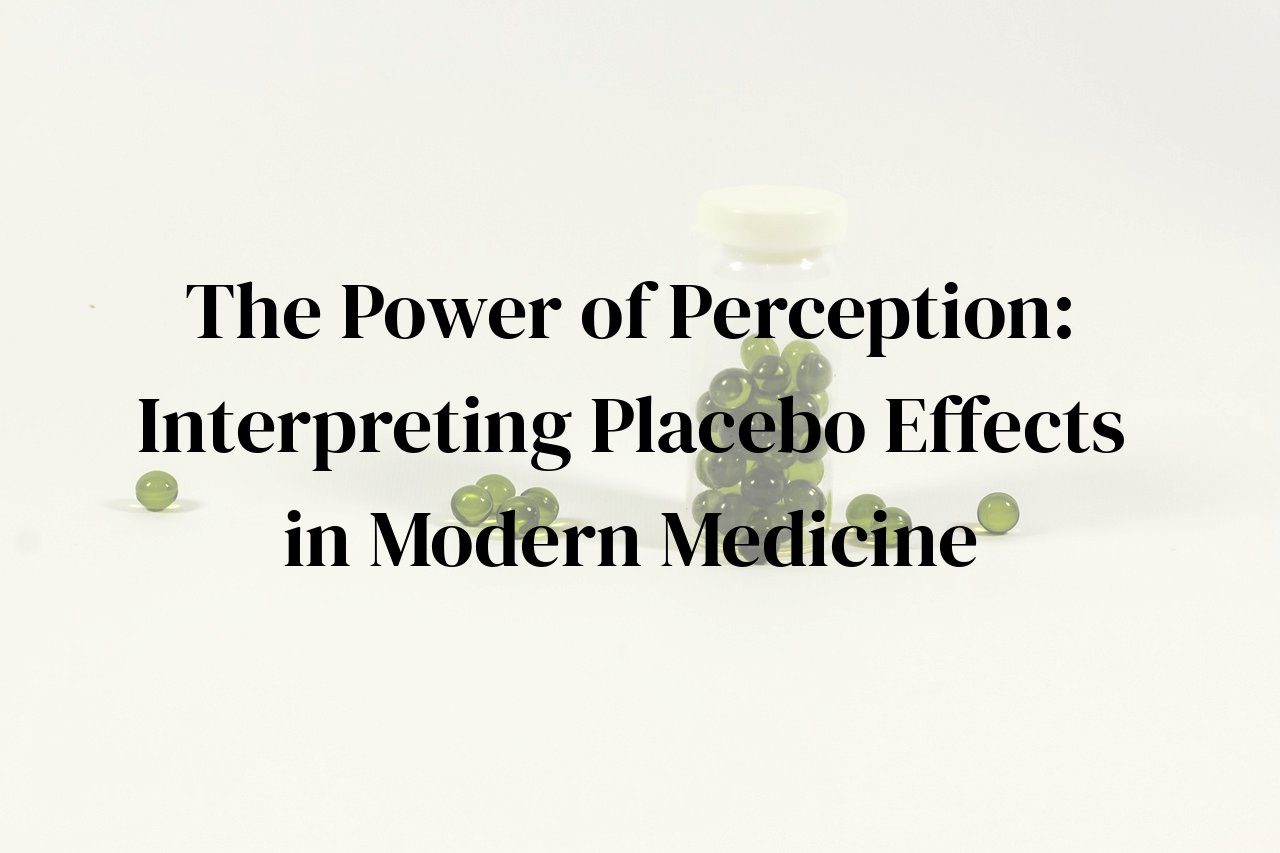
The remarkable journey of a pill void of active medication, yet potent in its therapeutic charm – that is the essence of the placebo effect. In this enlightening exploration, we will navigate the labyrinth of the human mind-body connection, dissecting the enigma of the placebo phenomenon and its profound impact on medical practices today. Prepare to delve into a narrative that transcends the traditional boundaries of medicine, as we reveal insights that might just revolutionize your perception of health and healing. You’re about to unravel a mystery that has baffled scientists for years, uncovering how the placebo effect casts a fascinating lens on the power of belief in medical outcomes.
Table of Contents
The Science Behind the ‘Magic’ Pill: Understanding Placebo
The term ‘magic pill’ often conjures images of miracle cures and instant remedies. However, the true magic lies not in the substance itself but in the mind’s capacity to elicit a healing response. This is the foundation of the placebo effect—where the belief in treatment’s efficacy, absent of an active pharmaceutical ingredient, can lead to tangible health improvements. Delving into this phenomenon, it becomes evident that the placebo effect encompasses a complex interplay of psychology and physiology.
When individuals participate in a trial or receive a treatment, they are influenced by their expectations. The power of suggestion and positive reinforcement from a healthcare provider can trigger the brain to release endorphins and other neurochemicals, which can mimic the effects of actual medications. This biological response is not merely ‘in the head’ but exhibits measurable physiological changes that can alleviate symptoms, demonstrating the body’s remarkable ability to self-regulate under conducive psychological conditions.
Critical to understanding placebos is their role in blinding within clinical research. A double-blind study, wherein neither the participant nor the researcher knows who receives the ‘real’ treatment, is instrumental in deciphering the efficacy of drugs versus the placebo effect. This provides a clearer picture of the drug’s true therapeutic potential, separate from the body’s natural response to the belief in treatment. This insight is highly significant for developing new medications and validates the effectiveness of treatments beyond the placebo effect’s influence.
Furthermore, the interconnection between mind and body is highlighted by the neurobiological mechanisms involved in the placebo response. Functional MRI (fMRI) scans have exposed how placebos can stimulate brain areas implicated in pain control, emotion, and cognitive evaluation. Thus, the ‘magic’ pill can ignite a cascade of ‘real’ changes within the brain, modulating perception of pain and symptomatology without traditional pharmacology at play.
In conclusion, the science behind the placebo unravels the enigma of the ‘magic’ pill, revealing the intricate ways our bodies and minds conspire to fabricate healing. As we continue to explore this mysterious yet powerful effect, we must acknowledge the legitimate role of psychological factors in recovery and the potential they hold within the landscape of modern medicine.
Placebos in Clinical Trials: Separating Fact from Pharmacological Fiction
The use of placebos in clinical trials is a cornerstone in establishing the efficacy of new treatments. By providing a group of study participants with an inert substance—often a sugar pill—and another group with the active medication, researchers can discern the true therapeutic effect of the medication in question, effectively separating fact from pharmacological fiction.
A placebo’s impact on clinical trial outcomes can be unexpectedly potent. Participants often report improvements in symptoms, even when the treatment they receive has no pharmacological value. This phenomenon is attributed to patients’ expectations, conditioning, and several psychological mechanisms that can influence physiological responses. Understanding these responses requires a deep dive into the psychology of healing and the body’s innate ability to respond to care and attention.
One of the critical attributes of a well-designed clinical trial is the blinding element, where neither the participants nor the researchers know who receives the real treatment and who gets the placebo. This double-blind approach minimizes bias and allows for a more objective assessment of the drug’s therapeutic value. Continuous monitoring and analysis are integral to these trials, as researchers painstakingly categorize and evaluate every reported outcome, determining which effects can be credited to the treatment and which are products of the mind’s influence on the body.
However, the placebo effect in clinical trials is not merely a hurdle to clear. It provides invaluable insight into patient care and the potential for non-pharmacological interventions to enhance treatment outcomes. By demystifying the mechanisms fueling the placebo effect, medical science can harness its potential, augmenting therapeutic protocols by integrating elements that trigger these positive physiological responses without active medication.
Importantly, the insights derived from placebo effects in clinical trials have led to profound questions about our methodological approaches and ethics in treatment. They have forced a reconsideration of how patient care is administered and the validity of treatments given that some patients improve with placebos alone. Thus, separating the tangible effects of medication from the psychological impact of receiving treatment necessitates a fine balance, blending rigorous scientific methodology with an emphasis on the multifaceted nature of healing.
Psychological Underpinnings: Why Do We Respond to the Placebo Effect?
The human response to the placebo effect is a fascinating journey into the psychological landscape of belief and expectation. Fundamentally, it is a testament to the power of our mind in influencing physiological outcomes. This phenomenon occurs when individuals manifest a physical or emotional change after receiving a placebo, which is an inert substance or treatment. What’s intriguing is that this occurs in the absence of any active pharmacological agent. But why? It turns out the roots of the placebo effect are firmly entrenched in psychological soil.
Firstly, conditioning plays a pivotal role. Just as Pavlov’s dogs salivated at the sound of a bell, humans can develop a conditioned response to medical interventions. When we receive a treatment, we often expect a positive outcome, and this expectation can actually lead to tangible improvements in health. It’s as if the body has been ‘trained’ to respond to the cues associated with treatment, like the sight of a pill or the atmosphere of a doctor’s office.
Another layer is the influence of suggestion and perception. When a healthcare provider projects confidence in a treatment’s effectiveness, patients are more likely to perceive benefits — even if the treatment is a placebo. This highlights the potent impact of the provider-patient relationship and the narratives we internalize about healing and medicine.
The social context cannot be ignored, either. Being part of a clinical trial or treatment group can instill a sense of optimism and community, contributing to the individual’s own belief in their recovery. Additionally, the very ritual of taking medication or undergoing a treatment can have a profound placebo effect due to the sense of action and participation in one’s health management.
Lastly, the body’s own pharmacy plays a role, as endorphins and other neurotransmitters can be released in response to placebo, mimicking the effects of real medications. Hence, when a person believes they are receiving a genuine treatment, their body may produce substances that lead to symptom relief, illustrating a biochemical underpinning of the placebo effect that intertwines with its psychological aspects.
Therefore, taking these psychological factors into account, the placebo effect emerges as a multifaceted interplay between mind and body. It exemplifies the incredible capacity of belief and expectation to marshal physiological change, underlining the necessity to factor in the power of the mind when considering treatment efficacy and patient care.
Implications of Placebo Use in Routine Medical Treatments
The introduction of placebos into routine medical practice envelops a spectrum of unexpected effects, transformative insights, and moral queries. When a patient experiences relief after taking a treatment deficient of active medical properties, we venture deep into the role of mind-body interactions. For instance, incorporating placebos could potentially reduce dependency on drugs that have adverse side effects, thus safeguarding patients from unnecessary physical harm while still providing symptomatic relief.
Furthermore, the placebo effect emphasizes the power of patient-provider relationship wherein the act of ‘being treated’ can trigger health improvements, irrespective of the intervention’s veracity. A healthcare provider’s empathetic engagement, convincing communication about the treatment’s potential benefits, and the establishment of positive expectations can activate significant self-healing processes, fostering patient confidence in the recovery journey.
However, the use of placebos also nudges against the boundaries of medical ethics. While they can be marvellously effective for some conditions, the deceptive nature inherent in their use conflicts with the principle of informed consent. It propels the medical community to ponder deeply about the conditions under which placebos could be ethically acceptable, ensuring that patient autonomy and trust in healthcare professionals remain uncompromised.
Additionally, the placebo effect’s variability among individuals unravels a challenge for clinicians. The mysterious influence of personal belief, past experiences, genetic makeup, and even cultural background on the efficacy of placebos calls for a personalized approach to treatment, which in turn demands a higher level of sophistication and understanding within medical practice.
Lastly, the cost-implications are also noteworthy. In a healthcare system burdened by soaring expenses, integrating placebos could offer a cost-effective treatment modality for certain conditions, thereby alleviating financial pressures on both patients and providers. In summation, the judicious use of placebos in routine medical treatment beckons a revolution in therapeutic protocols, but it must be navigated with discerning ethical scrutiny and a robust commitment to patient welfare.
Ethical Considerations: The Grey Area of Prescribing Placebos
The placebo effect, a phenomenon where a patient’s condition improves after receiving a treatment with no therapeutic value, is a testament to the mind’s influence on the body. However, the intentional use of placebos in medical practice introduces a range of ethical dilemmas. A core issue is the balance between autonomy and beneficence, the principle that a physician should act in the patient’s best interest. Prescribing a placebo, while possibly promoting healing through psychological pathways, may infringe on the patient’s right to informed consent. Without transparent communication, patients may be deceived, undermining the trust fundamental to the doctor-patient relationship.
Moreover, the act of prescribing placebos could be seen as violating the ethical doctrine of ‘do no harm.’ While placebos themselves typically do not cause direct harm, the reliance on inert treatments might delay the administration of effective medical interventions. Furthermore, a doctor’s decision to prescribe a placebo may inadvertently validate and reinforce a patient’s belief in ineffective treatments, which could have ramifications for their health-seeking behavior long-term.
Additionally, there are concerns surrounding justice and equitable access to healthcare. Utilizing placebos could be argued as an inappropriate allocation of medical resources, diverting patients from legitimate treatments. This can be particularly contentious when considering the varying costs of placebo versus active treatment and the potential for healthcare systems to support inefficient practices.
Finally, a nuanced aspect of placebo prescription is its potential for harnessing the mind-body connection in a way that engenders minimal harm and maximizes patient welfare, provided it is built on a foundation of transparency and consent. Some argue that if placebos can engender real, positive health outcomes without the risk of active medication side effects, there might be a place for their ethical use, but this remains heavily debated within the medical community. This discourse illustrates the profound complexity and multifaceted nature of the ethical landscape surrounding the prescription of placebos in modern medicine.
Conclusion
In the intricate dance of mind and medicine, the placebo effect stands as a testament to our intrinsic potential for self-healing and the complex interplay of belief and biology. This exploration has not only demystified the shadows cast by the placebo phenomenon but has also illuminated its potential to complement traditional medical treatments. As we forge ahead in healthcare innovation, integrating an understanding of the placebo effect is essential, enriching the tapestry of therapeutic strategies available to both practitioners and patients alike.



